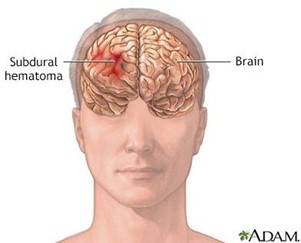Which statement by the nurse is most appropriate to a 15-year-old whose friend has mentioned suicide?
"Your friend's threat needs to be taken seriously and he needs immediate help."
"Tell your friend to come to the clinic immediately."
"If your friend mentions suicide again get your friend some help."
"You need to gather details about your friend's suicide plan."
The Correct Answer is A
The most appropriate statement by the nurse to a 15-year-old whose friend has mentioned suicide is option A. The statement acknowledges the seriousness of the situation and emphasizes the importance of taking the friend's threat seriously. It also highlights the need for immediate help and intervention. Suicide threats should never be dismissed or taken lightly, and it is crucial to involve professionals who can provide appropriate support and assistance.
"Tell your friend to come to the clinic immediately," in option B is incorrect because places the responsibility solely on the 15-year-old to relay the message to their friend, which may not be the most effective or timely approach.
"If your friend mentions suicide again, get your friend some help," in (option C) is incorrect because it does not address the urgency of the situation. Waiting for the friend to mention suicide again before acting may lead to potential harm.
"You need to gather details about your friend's suicide plan," is incorrect because places the responsibility on the 15-year-old to gather information about the friend's suicidal intentions. While understanding the situation and obtaining relevant details is important, the immediate priority is ensuring the friend's safety and seeking professional help.
Nursing Test Bank
Naxlex Comprehensive Predictor Exams
Related Questions
Correct Answer is A
Explanation
A subdural hematoma is a type of intracranial bleeding that occurs between the dura mater (the
outermost layer of the meninges) and the skull. The dura mater is a tough membrane that covers
and protects the brain. When a subdural hematoma occurs, blood collects between the dura mater
and the skull, resulting in increased pressure on the brain.
Bleeding is generally arterial, and brain compression occurs rapidly in (Option B) is incorrect because
while bleeding in a subdural hematoma can be arterial, it can also be venous. The rate of bleeding
and brain compression can vary depending on the size and severity of the hematoma.
Bleeding occurs between the dura and the cerebrum in (Option C) is incorrect because the bleeding
in a subdural hematoma does not occur between the dura and the cerebrum (the largest part of the
brain). It specifically occurs between the dura and the skull.
The hematoma commonly occurs in the pretemporal region in (Option D) is incorrect because the
location of a subdural hematoma can vary. While pretemporal region is a possible location, subdural
hematomas can occur in different areas of the brain, depending on the site of injury.

Correct Answer is C
Explanation
Hypoglycaemia is characterized by low blood sugar levels. In children, symptoms of hypoglycaemia can vary, but irritability is a common sign. Other signs and symptoms of hypoglycaemia in children may include sweating, trembling, pale skin, hunger, weakness, confusion, and dizziness.
Normal sensorium and serum glucose greater than 160 mg/dL in (Option A) is incorrect because a normal sensorium (normal level of consciousness) and a serum glucose level greater than 160 mg/dL would not be indicative of hypoglycaemia.
Urine positive for ketones and serum glucose greater than 300 mg/dL in (Option B) is incorrect because it describes characteristics of hyperglycaemia (high blood sugar levels) rather than hypoglycaemia. Positive urine ketones and a serum glucose level greater than 300 mg/dL are commonly seen in diabetic ketoacidosis, a complication of high blood sugar levels in diabetes.
Increased urination and serum glucose less than 120 mg/dL in (Option D) is incorrect because it describes increased urination and a serum glucose level less than 120 mg/dL. While a serum glucose level less than 120 mg/dL could indicate hypoglycaemia, increased urination is not a typical sign of hypoglycaemia. Increased urination may be seen in conditions such as diabetes mellitus when blood sugar levels are consistently high.
Whether you are a student looking to ace your exams or a practicing nurse seeking to enhance your expertise , our nursing education contents will empower you with the confidence and competence to make a difference in the lives of patients and become a respected leader in the healthcare field.
Visit Naxlex, invest in your future and unlock endless possibilities with our unparalleled nursing education contents today
Report Wrong Answer on the Current Question
Do you disagree with the answer? If yes, what is your expected answer? Explain.
Kindly be descriptive with the issue you are facing.
